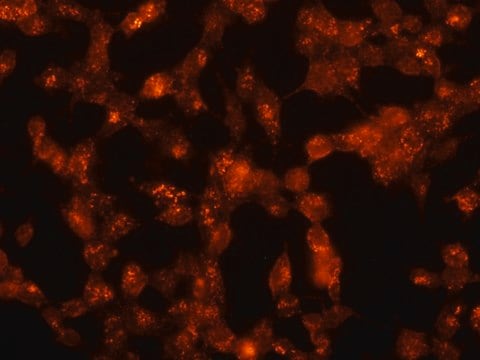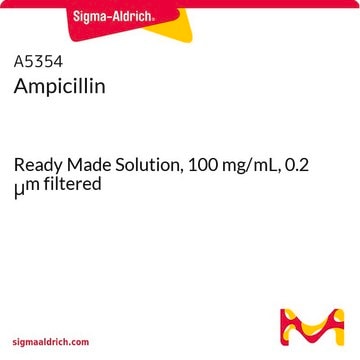ABE1354
Anti-Exo1
from rabbit
Sinónimos:
Exonuclease 1, hExo1, Exonuclease I, hExoI
About This Item
Productos recomendados
biological source
rabbit
Quality Level
antibody form
affinity isolated antibody
antibody product type
primary antibodies
clone
polyclonal
species reactivity
human
packaging
antibody small pack of 25 μg
technique(s)
immunoprecipitation (IP): suitable
western blot: suitable
NCBI accession no.
UniProt accession no.
target post-translational modification
unmodified
Gene Information
human ... EXO1(9156)
General description
Specificity
Immunogen
Application
Western Blotting Analysis: A 1:1,000 dilution from a representative lot detected Exo1 in HeLa and siExo1 hela cell lysates (Courtesy of Dr. Zhongsheng You at Washington University in St. Louis).
Epigenetics & Nuclear Function
Quality
Western Blotting Analysis: 2 µg/mL of this antibody detected Exo1 in 293T cells transfected with GFP-Exo1.
Target description
Physical form
Storage and Stability
Other Notes
Disclaimer
¿No encuentra el producto adecuado?
Pruebe nuestro Herramienta de selección de productos.
Storage Class
12 - Non Combustible Liquids
wgk_germany
WGK 1
flash_point_f
Not applicable
flash_point_c
Not applicable
Certificados de análisis (COA)
Busque Certificados de análisis (COA) introduciendo el número de lote del producto. Los números de lote se encuentran en la etiqueta del producto después de las palabras «Lot» o «Batch»
¿Ya tiene este producto?
Encuentre la documentación para los productos que ha comprado recientemente en la Biblioteca de documentos.
Nuestro equipo de científicos tiene experiencia en todas las áreas de investigación: Ciencias de la vida, Ciencia de los materiales, Síntesis química, Cromatografía, Analítica y muchas otras.
Póngase en contacto con el Servicio técnico








